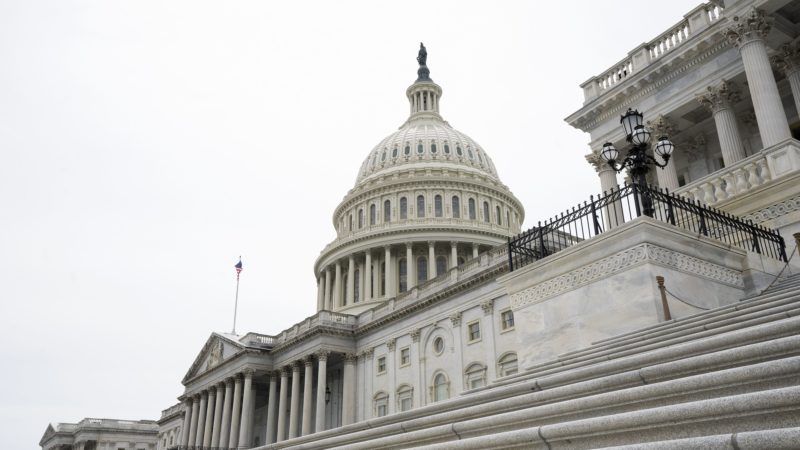Senate Approves Fourth Round of Coronavirus Spending: $484 Billion for Small Businesses, Testing, Hospitals
The deal primarily sets aside $320 billion for the Paycheck Protection Program for small businesses.

The Senate on Tuesday passed an addition to the Coronavirus Aid, Relief, and Economic Security (CARES) Act, which will funnel another $484 billion toward small business loans, hospitals, and testing.
At the center of the new package is $320 billion in funding for the Paycheck Protection Program, the stimulus measure meant to provide a lifeline to small businesses hit hard by COVID-19 shutdowns. A $60 billion portion of that has been set aside specifically for community bankers in order to help companies that have had trouble securing loans from large lending institutions.
Another $75 billion will go toward hospitals on top of the $100 billion allotted to them in the first version of the CARES Act. That funding will assist medical centers in making up for COVID-19 costs and lost revenue, particularly as hospitals across the country have had to cancel elective surgeries.
A $25 billion carveout has been reserved to ramp up COVID-19 testing. Out of that sum, $11 billion will go to states and localities, $1 billion will go to the Centers for Disease Control and Prevention (CDC), $1.8 billion will go to the National Institutes of Health, $1 billion will go to the Biomedical Advanced Research and Development Authority, and up to $1 billion can be utilized to cover testing for those without insurance.
"I am encouraged that Democrats have finally agreed to reopen the Paycheck Protection Program and abandon a number of their unrelated demands," said Senate Majority Leader Mitch McConnell (R–Ky.) in a statement. "Republicans never wanted this crucial program for workers and small businesses to shut down. We tried to pass additional funding a week before it lapsed. But Democratic leaders blocked the money and spent days trying to negotiate extraneous issues that were never on the table."
In fact, lawmakers from both parties have used the crisis to push for unrelated demands. The Democrats publicly pushed for additional money for hospitals, which lawmakers agreed to spend in this bill.
"Congressional Democrats are proud to have secured an agreement on an interim emergency funding package that has been transformed to provide real support for the lives and livelihoods of the American people," House Speaker Pelosi (D–Calif.) and Senate Minority Leader Chuck Schumer (D–N.Y.) said in a statement. "Democrats flipped this emergency package from an insufficient Republican plan that left behind hospitals and health and frontline workers and did nothing to aid the survival of the most vulnerable small businesses on Main Street.
Sen. Rand Paul (R–Ky.) announced his opposition and urged the need for remote voting, as many lawmakers are away from Washington, D.C., in quarantine. "This money doesn't exist anywhere. It will be created or borrowed," he said on the Senate floor. "I did return today so that history will record that not everyone gave into the massive debt that Congress is creating."
The compromise will likely be welcome news to many small businesses who were shut out of the Paycheck Protection Program's first round of loans, which ran out of funding after less than two weeks.


Show Comments (41)